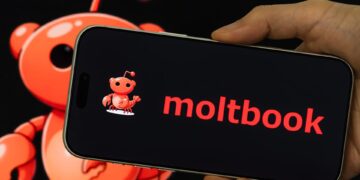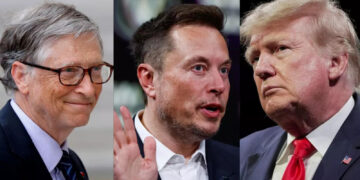Washington, D.C., July 7, 2025 – Tech billionaire Elon Musk has launched a new political party in the United States, called the “America Party,” sparking global interest in whether it could challenge the long-standing dominance of the Republican and Democratic parties in the 2026 midterm elections. The announcement comes amid a public feud with US President Donald Trump, raising questions about the party’s potential to reshape American politics.
A New Political Force
Musk, the world’s richest man and CEO of Tesla and SpaceX, revealed the formation of the America Party on July 5, 2025, through a post on his social media platform, X. “By a factor of 2 to 1, you want a new political party and you shall have it!” Musk wrote, citing a poll he conducted on X where 65.4% of 1.25 million respondents supported the idea. He claims the party will focus on giving Americans “back their freedom” by addressing issues like government spending, debt reduction, and modernizing the military with AI and robotics.
The America Party’s platform emphasizes fiscal responsibility, free speech, fewer regulations, and pro-natalist policies to encourage higher birth rates. Musk has described the current US political system as a “one-party system” when it comes to wasteful spending, accusing both Republicans and Democrats of bankrupting the country.
Why Now?
Musk’s decision to launch the America Party stems from his opposition to a recent US tax and spending bill, signed into law by President Trump on July 4, 2025. Musk called the bill a “disgusting abomination,” arguing it will increase the national debt by $3.3 to $5 trillion over the next decade. This disagreement has fueled a public fallout between Musk and Trump, who were once close allies. Musk, who spent over $250 million supporting Trump’s 2024 presidential campaign, now aims to challenge politicians who backed the bill.
Trump has responded sharply, threatening to cut government subsidies to Musk’s companies and even suggesting a probe by the Department of Government Efficiency (DOGE), which Musk briefly led in 2025. This escalating tension has raised concerns among Republicans about the potential impact on their party’s unity and electoral chances in 2026.
A Targeted Strategy
Unlike traditional third parties that aim for broad national campaigns, Musk’s America Party plans to focus on a small number of key races in the 2026 midterms. Musk has indicated the party will target 2–3 Senate seats and 6–10 House seats in competitive districts, aiming to act as a “deciding vote” in Congress due to its razor-thin legislative margins. He likened his strategy to the ancient Greek general Epaminondas, who defeated Sparta by concentrating forces at a critical point.
This focused approach could amplify Musa’s impact. With his estimated net worth of over $350 billion, Musk has the financial resources to fund candidates and campaigns effectively. In 2024, he spent nearly $300 million supporting Republican candidates, demonstrating his ability to influence elections.
Can It Succeed?
Historically, third parties in the US have struggled to break the Republican-Democratic grip due to structural barriers like gerrymandered districts, strict ballot access laws, and a winner-takes-all electoral system. However, Musk’s wealth and public profile make the America Party a unique contender. A recent poll by Quantus Insights found that 40% of US voters, including 57% of male Republicans, are open to supporting the America Party, signaling potential to draw votes, particularly from disillusioned Republicans.
In states like Virginia, where competitive districts exist, the America Party could play a spoiler role. For example, if America Party candidates attract conservative voters, they might split the Republican vote, potentially helping Democrats win seats in districts like Virginia’s 2nd Congressional District. Historical examples, such as the 1994 Virginia Senate race where an independent candidate influenced the outcome, suggest this is possible.
However, skeptics question whether Musk will follow through. He has a history of ambitious promises that don’t always materialize, and organizing a national party by November 2026 is a massive logistical challenge. Political experts also note that Musk’s declining popularity—polls show 49% of Americans view him unfavorably—could limit the party’s appeal.
Implications for 2026
The America Party’s emergence could have significant consequences. For Republicans, it risks splitting their voter base, threatening their slim congressional majorities. Democrats, meanwhile, see an opportunity to capitalize on anti-Musk sentiment, with some already using him as a campaign target to energize their base.
Globally, the America Party’s rise is being watched as a test of whether a billionaire-backed movement can disrupt a deeply entrenched political system. If successful, it could inspire similar efforts in other countries with polarized politics. However, if it fails, it may reinforce the resilience of the US two-party system.
What’s Next?
Musk has not yet named candidates or filed formal paperwork with the Federal Election Commission, leaving some to wonder if the America Party is more of a symbolic gesture than a serious endeavor. Still, his financial power and ability to mobilize voters through X make it a development worth watching.
As the 2026 midterms approach, the world will be watching to see if Musk’s America Party can truly challenge the Republican-Democrat status quo or if it will fade as another bold but fleeting idea from one of the world’s most unpredictable billionaires.





































